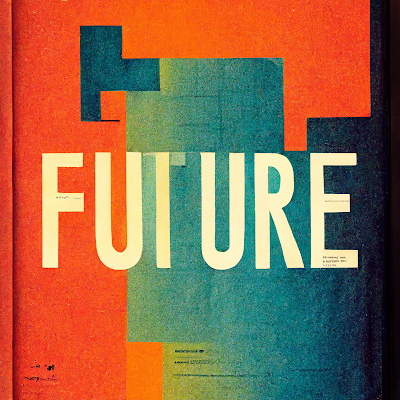Difference, diversity, and decolonising futures thinking
I live and work in New Zealand and in my futures thinking journey, I’ve noticed that while many of the tools, techniques, and canvases used are similar, the core focus of futures thinking differs across different continents and hemispheres.
In my simplistic observations, the US is markedly driven by tech futures and the impact upon societies; Europe seems to be ‘societal and future government policy’ driven; and while I’m in the mood for making sweeping generalisations, I feel that the Asian futurist leaders in this space consider all angles, but with an added, deeper, ‘meta-perspective' that explores people’s inter-connectedness to all things ‘futures’. See Sohail Inayatullah's stunning work in this space (Causal Layer Analysis)
Perspectives of time and speed also differ between these cultures, for example, a need to act Vs the need to act now.
Even though
I fit into the ‘pale, male, and stale’ cohort, there is an urgent
need to decolonise the field of futures thinking and ensure that this field is
not overly stacked with practitioners from WEIRD societies (Western Educated
Industrialised Rich and Democratic).
We must
embrace other world views such as those found when exploring indigenous futures,
and not because we think it is ‘the right thing to do’, we have to do it
because it is the right thing to do, for all of us living on this
planet.
There is a
burning need for diversity of thought and deed in this field, and that will only
come about through a truly inclusive community of futures thinkers.
Inclusivity
is not merely about race, gender, religious beliefs, or sexuality, it is also concerned
with inequity and poverty.
Words
matter and there is a set of words/terms used almost interchangeably, that
have quite different meanings. I developed the following table to help explain
what each term means and how we might use it to further our future studies:
|
1. Diversity |
The spectrum of individual differences and the corresponding group memberships and identities that human beings have in society* |
Bring together the most diverse group of people possible. Ethnicity, gender
identity, sexuality, spiritual beliefs, the highly educated, and the less educated,
the privileged, and the non-privileged. |
|
2. Inclusion |
The practice or policy of including and integrating all people and groups in activities, organizations, political processes, etc., especially those who are disadvantaged, have suffered discrimination, or are living with disabilities* |
Give every person equal access to a safe place, and a voice. Ensure everybody
has an opportunity to be respectfully heard.
|
|
3. Divergent thinking |
Thinking in an unusual and non-stereotyped way, e.g. to generate several possible solutions to a problem* |
This is the time for divergent views to be expressed and heard with
respect. People are usually telling their truth as they see it, so we all need
to be ‘active listeners’ and take the time, to not only see the world through
the eyes of others but to feel and begin to understand them – in other
words, develop real empathy. |
|
4. Convergent thinking & recommended
actions
|
Analytical, usually deductive, thinking in which ideas are examined for their logical validity or in which a set of rules is followed* |
Curiosity and the mutual respect of all the players in a group now
allow everyone to come together to filter possible actions to help solve a
problem or explore a new future opportunity. This helps enable a better, more
nuanced, and inclusive understanding of how to progress. |



Comments
Post a Comment